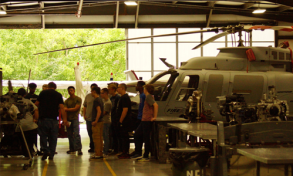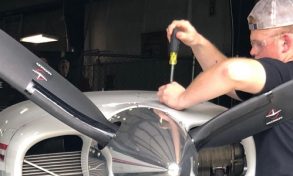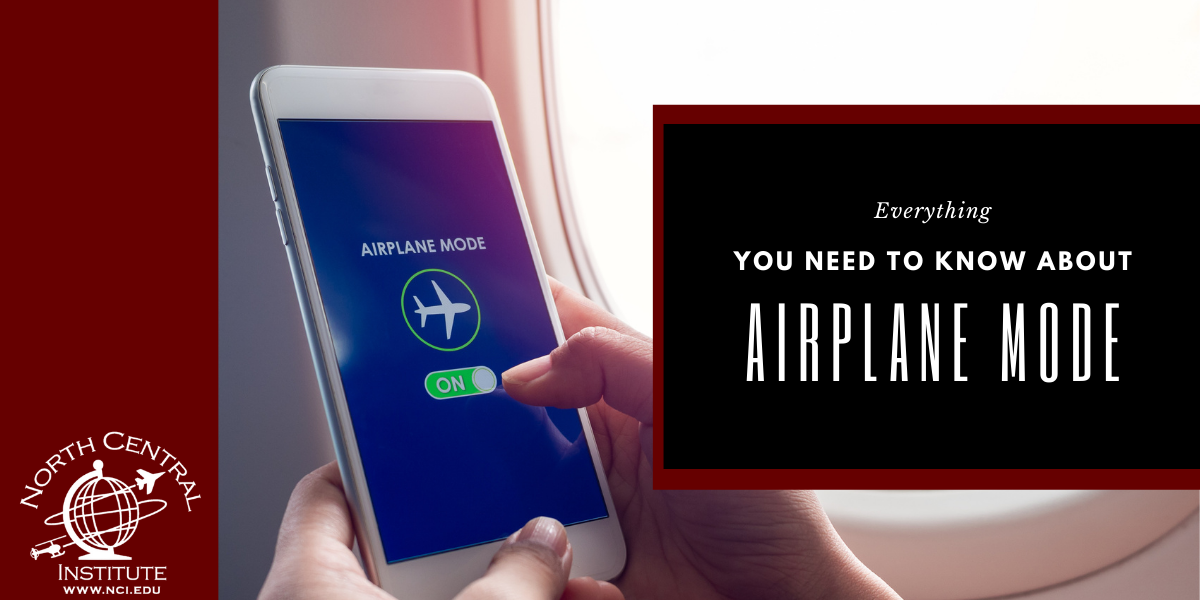If you’ve flown anywhere in the last decade or so, you’ve likely been asked to switch your cellphone or other electronic devices to “airplane mode”. Unfortunately, this doesn’t turn them into an airplane. While most of us will simply follow the instructions to switch to airplane mode without a second thought, other may have questions. Like what is airplane mode and why is it so important?
What does airplane mode do?
Depending on the device, airplane mode may only shut off cellular data, but could also shut off Wi-Fi and Bluetooth. In short, airplane mode disables your phone’s ability to connect to and use its wireless transmission functions. What does this mean for your cellphone or other electronic devices?
- Cellular- Your cellphone will stop communicating with cell towers. This means that you will not be able to send or receive anything that depends on cellular data. Phone calls, voicemail, and SMS text messages will be suspended until cellular data is turned back on.
- Wi-Fi- Your cellphone or other device will stop scanning and trying to connect to nearby Wi-Fi enabled networks. If you were connected to Wi-Fi before turning on airplane mode, you will be disconnected.
- Bluetooth- Bluetooth allows your devices to communicate with other technologies. Although we associate Bluetooth with wireless headphones, it can also be used for keyboards and mice. With Bluetooth disabled, your cellphone or other devices will not be able to connect these.
Why is it important?
Airplane mode exists because cellphones and other electronic devices transmit signals. That’s how you receive texts, watch videos on YouTube, and listen to music through wireless earbuds. A typical phone is communicating with several cell towers at a time to maintain a reliable connection at all times. If cellular data was still on while you were on an airplane, the height combined with the fast rate of travel, would make this extremely difficult for your phone. The cellular signal would have to be boosted by your phone to reach those far away towers. Unfortunately, that signal could interfere with an airplane’s sensors and even cause sensitive navigation equipment to malfunction.
It has also been found that cell towers on the ground can become overwhelmed due to phones in the sky. With how quickly airplanes travel, cellular signals would have to be bounced off of cell towers at high speeds. These signals, along with the ones from people using their cellphones on the ground, could cause a disruption in service. Additionally, you wouldn’t have a very reliable connection on the airplane and you battery would be drained much faster.
The FAA’s take
In 2013, the FAA decided that the restriction on cellphones and electronic devices was a bit too harsh. Passengers are now allowed the use of Wi-Fi and Bluetooth on their electronic devices. Because the range of Bluetooth is only about 30 feet, there is an incredibly low chance that it will interfere with the plane’s instruments. This means that you can still use your wireless headphones, keyboards, and mice on your next flight.
Many airplanes also have inflight Wi-Fi that you can connect to. Although airplane mode will turn off Wi-Fi and Bluetooth, you can go into your settings and manually turn these functions back on without turning on cellular data.
Other uses for airplane mode
Airplane mode doesn’t just have to be for airplanes. If you find yourself easily distracted by texts or browsing the web on your phone while you’re trying to get work done, try turning on airplane mode for a few hours. You can also worry less when you allow your kids to play games or take pictures on your phone if airplane mode is on. This way they can’t accidentally access the web and buy your entire Amazon wish list!
Airplane mode can also help your battery life. If you need to charge your phone quickly or just need your battery to last longer: airplane mode can save the day. Because it stops your phone from trying to constantly find and connect to wireless networks and signals, it gives your battery a break.
Learn more today!
If you want to learn more about the systems at work on airplanes and you’re looking for a career change, NCI could help you get your career off the ground! Contact us today!











